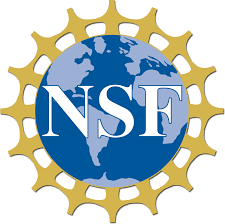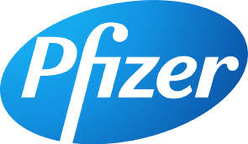
This position is the President and Chief Executive Officer of the Montgomery County Economic Development Corporation that will have responsibility for overall administrative and management direction for the organization. The primary mission of MCEDC is to market Montgomery County worldwide as the region of choice for business investment and expansion. This leader will position MEDC as the County’s lead economic development and marketing organization for promoting, recruiting, and expanding businesses in Montgomery County. The ability to retain and grow existing businesses is of paramount importance. The CEO will lead an organization that enhances the impact of all companies invested in Montgomery County including small business and culturally diverse entities. The CEO will also advocate for strengthening the entrepreneurial ecosystem helping to develop a community that cultivates and encourages entrepreneurs while making maximum use of the local diverse, skilled population.

Three years after Michael Davidson and his colleagues sold the omega-3 drug Epanova to AstraZeneca ($AZN) in the $443 million Omthera buyout, the biotech exec has rounded up some fresh support from a seasoned ally in the venture world to begin building a new biotech focused on cardiovascular disease.

CC Biotech LLC, Rockville MD, developing advanced separations technologies for large molecules, is awarded an SBIR phase I grant from the National Science Foundation for the project ‘Spiral Countercurrent Chromatography for the Separation of Carbon Nanotubes’. The new technique has been applied for the first time to successfully purify single wall carbon nanotube species which are semi-conductors. The application will enable the processing of potent semi-conductors to be added to sensor circuits. The implications of this R&D have wide application to not only bio-sensor devices, but also in the preparation of nanotech molecules as therapeutic nanoparticles and conjugates for drug delivery.

PapGene, Inc., a privately-held company commercializing advanced molecular tests, announced that it was recently awarded a highly competitive Fast-Track Small Business Innovation Research (SBIR) grant from the National Cancer Institute of the National Institutes of Health to commercialize a test to detect ovarian and endometrial cancers.
The funds for this Fast-Track grant will be released in two phases, which together have the potential to provide a total of nearly $2.3 million in resources to PapGene’s test commercialization efforts. Phase I will provide $297,000 to the company to demonstrate the accuracy of the test and its clinical validity. Upon successful completion of Phase I, Phase II will provide approximately $2 million to demonstrate the clinical utility of the test and to launch its regulatory approval process.

The EY Entrepreneur Of The Year Award has become the mark of world-class individuals leading world-class companies. We invite you to be part of this exciting program. At a time when innovators are leading the way to a better world, we are seeking your help to identify those individuals whose diligence and relentless pursuit of their dreams set them apart from the rest.
EY Entrepreneur Of The Year honors entrepreneurs whose ingenuity, hard work and perseverance have created and sustained successful, growing business ventures. The program is celebrating its 30th year and has expanded to more than 145 cities and 60 countries around the world. EY forms a group of individuals from the business community to participate as the independent panel of judges for the program. This panel is made up of past award winners and C-suite leadership of high-growth entrepreneurial organizations. It also includes influential business leaders from the venture capital and private equity communities.

Roche ($RHHBY) and AstraZeneca ($AZN) picked up FDA breakthrough therapy designations for their top pipeline assets, moving forward in multiple sclerosis and cancer with treatments tabbed as potential blockbusters.

Protenus Raises $4 Million Series A to Protect Patient Privacy on a National Scale
Protenus, the leader in next-generation privacy protection solutions for electronic medical record systems, has raised $4 mm in a Series A round led by Arthur Ventures. Protenus is also pleased to receive the support of LionBird Venture Capital, DreamIt Ventures, Cognosante, TEDCO, and the Baltimore Angels.

A study just completed by the Sage Policy Group on behalf of the Maryland Business Incubation Association (MBIA) has concluded that Maryland’s 30 small business incubators are having a significant and far-reaching impact on the state’s economy.

When: Thursday February 25, 2016 from 5:00 PM to 7:00 PM EST
Where: Institute for Bioscience & Biotechnology Research
Join BioBuzz and our newest ELITE SPONSOR the Institute for Bioscience and Biotechnology Research at their newly renovated facilities in Rockville. The Institute for Bioscience and Biotechnology Research (IBBR) is a University System of Maryland joint research enterprise created to enhance collaboration among the University of Maryland College Park, The University of Maryland Baltimore and the National Institute of Standards and Technology (NIST). The mission of IBBR is to leverage collective research strengths of the partnering institutions in medicine, biosciences, technology, quantitative sciences and engineering, to foster integrated, cross-disciplinary team approaches to scientific discovery and education, and to serve the expanding economic base of biosciences and technology in the state of Maryland and the Nation.

The 2016 Maryland Incubator Company of the Year Awards publicly recognizes achievements by current clients and graduates of Maryland incubators and provides a forum for the nominees to increase their visibility in the business, technology and investment communities.
Business incubators support new and early-stage businesses in Maryland. In 1986, the first public incubator was established at the University of Maryland in College Park. Recognizing the economic challenges facing new companies, business incubators are facilities that provide reasonable market rents, shared services and technical assistance to start-ups and early-stage companies, including manufacturing, biotech, service and technology firms.

Despite long-term declines in business creation and slow growth, there are many reasons to be optimistic about the future of entrepreneurship in the United States. This message, delivered by Kauffman President and CEO Wendy Guillies in the State of Entrepreneurship Address, summarizes key findings in a publication released yesterday called The New Entrepreneurial Growth Agenda.

For the second straight year, state legislators from Baltimore are backing an effort to create a tax credit for angel investors in Maryland.
The bills, filed by State Sen. Catherine Pugh and Del. Brooke Lierman, would create a tax credit of 50 percent of an investment made in a startup. The bills create a reserve fund to distribute the tax credit, which could be up to $5 million per year, an analysis states.

When: Tuesday, March 1, 2016
Where: University of Maryland Biopark
This workshop is intended to help make you a smarter entrepreneur…A good accounting process and system can help you identify and track key metrics of your business REAL TIME to help you make better decisions. Plus, all investors and banks want to see your financial projections. In the first part of the workshop, Mike Lynch and Jim Jenkins from SC&H will lead attendees through an educational presentation on:

The National Science Foundation plans to expand its innovation ecosystem by funding new hubs of what it calls the Innovation Corps — a set of training programs and other initiatives to rapidly translate progress made in labs to the commercial world.

The Walter Reed Army Institute of Research (WRAIR) invites Young Women In Bio (YWIB) and area middle school girls to participate in an afternoon of science immersion. WRAIR shares YWIB’s passion for engaging the DC/Baltimore community in science, technology, engineering, and math, and supports numerous educational outreach programs. Through their GEMS (Gains in the Education of Mathematics and Science) program, adolescents get to experience firsthand scientific method and valuable experimental techniques.
Come join WRAIR and YWIB for a taste of this exciting curriculum. Middle school girls will first tour the National Museum of Health and Medicine. Next, in the teaching lab, WRAIR scientists will help the girls perform a basic dissection, observe the protists that aid in termite digestion, and learn the math behind pipetting. Registration is limited to 25 girls so please be sure to sign-up early to reserve your place.

Here’s the most important thing you need to know about being an entrepreneur, according to Under Armour Inc. CEO Kevin Plank:
“Everything matters. The way you carry yourself, the way your business card looks, the way you dress during the day.”

A Symposium for manufacturers, scientists, entrepreneurs, and educators to explore new bio-medical applications of additive manufacturing and 3D Printing. Keynote by Congressman Andy Harris, M.D. Featuring presentations from top thought leaders in government, industry, and academia. Download the event flyer and agenda: Biomedical Symposium Flyer and Agenda

At Doctor on Demand, a popular online health site, patients can videoconference with physicians on a host of maladies, from skin rashes and flu diagnoses to getting a prescription for an eye infection. On Maven, a telemedicine app targeted to women, nurse practitioners chat with patients on issues such as birth control, breast feeding and postpartum depression. Opternative offers online eye exams that it says are just as accurate as in-person tests. It’s a boom time for telehealth. Just as smartphone apps have revolutionized ride-hailing and apartment-sharing, telemedicine technology is upending health care.

Pfizer Consumer Healthcare, a division of Pfizer that maintains consumer health brands including Advil, Caltrate, Centrum, ChapStick, and Nexium24 HR, has partnered with education company Galvanize to launch a health tech accelerator.

The United States has long had the world’s most effective and competitive system for discovering and developing new drugs—and for more than a half century, there has been a bipartisan consensus that there are two reasons for that success: First, the federal government provides robust funding for scientific research, mostly through the National Institutes of Health (NIH). Second, the U.S. system encourages vigorous innovation in the private sector by providing strong intellectual property protections and a drug reimbursement system that together allow companies to earn sufficient revenues to reinvest in highly risky research and development.1 But today that consensus is fraying as populists on the left and libertarians on the right question both the policy means and the end result. If the center cannot hold and the longstanding bipartisan policy framework falls apart, then the future of U.S. biomedical innovation will be in peril.

Virginia’s House and Senate finance committees released two-year budget proposals Sunday that boost funding for economic development in a state bludgeoned by federal spending cuts, The Washington Post reports.
Gov. Terry McAuliffe, a Democrat, has made growing and diversifying Virginia’s economy one of his top priorities.

Biotech and the overall equity markets have been under siege the past few months from macro forces, like oil and the economy, as well as sector-specific concerns like drug pricing.
After watching the carnage in 2016 wreck havoc with small and large cap stocks alike, I figured it was time to revisit the post-market performance of the recent biotech IPO cohort. It’s grim, as you might expect. A rising tide lifts all the boats, and a falling one leaves a lot of small ones exposed on the shoreline. Here are a few metrics on the VC-backed IPO cohort since 2013, as of February 11, 2016:

It’s hard for most people to find time to work out to stay fit, but when fitness has been part of your life since high school and you’ve served in the military, it’s a problem that can be especially vexing. That is what happened to Gregory Coleman, Chief Operating Officer of Nexercise, a Business Innovation Network member. A three-season high school athlete who graduated from the Air Force Academy, served as an Air Force and Air National Guard pilot, was enrolled in the Wharton School of the University of Pennsylvania, plus was married and had a family, Greg felt like he was too busy to make it to the gym. Fellow Wharton student Ben Young, Chief Executive Officer of Nexercise, felt similar pain, and thought they could solve that problem in 2010 by taking advantage of the technology of Apple’s new iPhone.

In testimony to the U.S. International Trade Commission, Stephen Ezell explained why the biotech industry is a key driver of the U.S. economy and global life sciences innovation, and he argued that robust intellectual property standards in the Trans-Pacific Partnership will be critical to both. Ezell notes that the U.S. provides 12 years of IP protection for clinical test data, so it is disappointing that the TPP commits U.S. trading partners to provide eight at most.